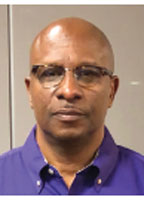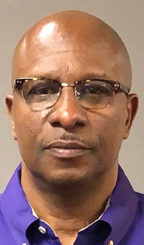
By Frank Gaines, Ph.D.
Part 3 of 4
The upcoming presidential election has been the dominant headline for quite some time. The COVID-19 pandemic shutdown and subsequent health and economic crisis have commanded worldwide focus and attention most of this year. But the horrific and tragic murder of George Floyd at the hands of police, a Black man, has galvanized and impacted the world in ways none of us could have imagined. This 4-part series looks at the interconnectedness and impact those events can have to affect a positive impact on education. Frank Gaines, Ph.D.
The outcomes we see result from the opportunity’s afforded. Survival forces oppressed groups to do what it takes to survive. There are many components that can make up the agenda necessary to improve outcomes we see sensationalized in the media, but don’t think we have substantive control over, issues that include social, political and economic outcomes for jobs, housing, family, civil and legal rights. So, what happens when the protest is over, the march ends, and the emotion and adrenaline dissipate? What do we do with all this?
The attention generated by our anger and anxiety coupled with the violence that often comes not from us during protest, but combusts when agitators take advantage of the situation, leads mainstream society to think our mere presence in protest is somehow an act of violence that should be met with “deadly force”. But while we have the attention of those we perceive as having the ability to influence change, what do we do with it? Justice is just the beginning of satisfying the basic needs of oppression. Justice followed by attention to cause and effect. The outcomes are effects. The cause is lack of opportunity. The opportunity for equity in every aspect of the life of every American, and at this juncture we are giving particular focus to that of the Black man in America, without consideration to how he lives is destined to fail if we only react to how he dies and not be proactive to address how he lives.
Beyond justice we should want opportunity connected to a focused agenda and platform that attends to how we live, the persona that is our reality and that which the world has attached to us. Opportunity begins with our impact and role in a democratic society, an impact directly correlated to outcomes we expect through our participation in the education system. Scathing indictments and critiques of our education system have been written about many times over to no avail. Schools work best for the upper quartile student who receives the best the system has to offer. Students of color are overwhelmingly underrepresented in that quartile. The lowest quartile where students of color are overrepresented receives marginal additional resources, typically via special education programs. But the majority of students of color, the middle 50%, the students who show up every day, do the right thing, succeed in spite of naysayers and ugly circumstances and do what they’re told are rewarded with being indistinguishable, undervalued, underestimated, under-resourced and marginalized. They are not in the school-to-prison pipeline which is topic #1 when we talk about Black males, they are ignored. They are the “Invisible Majority”.
I am not a politician, economist or public official, but I am advocate for social, political, economic and most of all educational equity. Equity that does not come from providing equal resources to all subgroups in a system serving everyone from the destitute to the affluent. I am an advocate with practical and academic research experience in urban education. You can say that all politics are local and subsequently the destiny and social circumstance of local citizenry is as well, but that would be a naïve wholistic contention. Everyone is accountable, and the most far reaching sophisticated platform to effect change is our own education system, not the prison industrial complex.
The narrative about urban students, particularly the Black male, is cloaked in dialogs about the “school to prison” pipeline. True, some have been “Touched by Justice”, but that’s not the definitive moniker we should use to serve the majority who I refer to in my writing as “The Invisible Majority”. Most don’t get in trouble, show up to school every day, work hard, do what’s right, yet programming is designed to keep them from failing as opposed to providing them opportunities to succeed through K-20 support systems are largely absent. Support systems for the upper quartile are imbedded, and many times it is done sub-consciously. If I am incorrect, please outline the systems that generate success and provide widespread examples. If you cannot let’s continue this conversation.
Covid-19 has exacerbated the situation. The unjustified killing of yet another Black man has raised tensions once again. On the national stage, education is in need of an over-haul as urban students have not been benefactors in the process.
“The individual must have the power to stand up and count for something in the actual conflicts of life.” — John Dewey
“I’m for truth, no matter who tells it. I’m for justice, no matter who it’s for or against.” — Mal



Be the first to comment